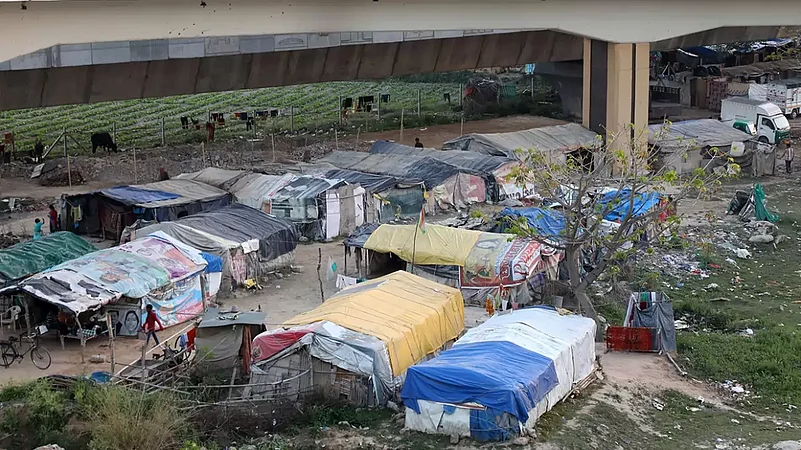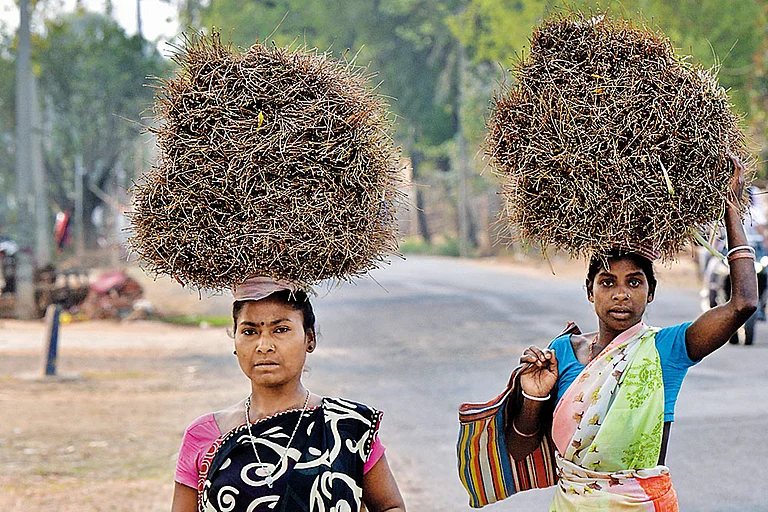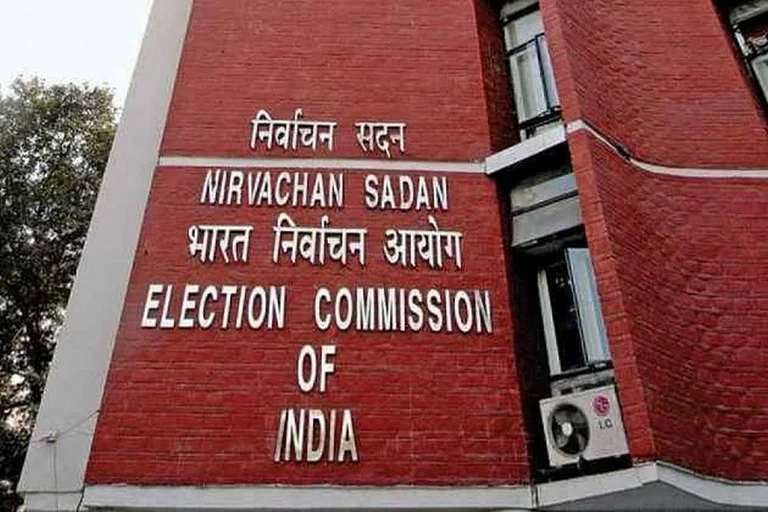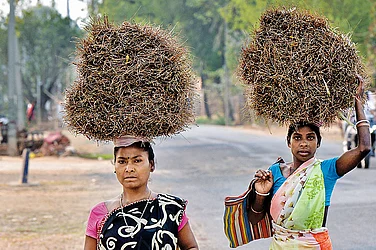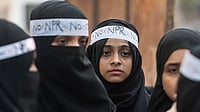Baiya Pawar, a woman of indeterminate age, sits under a flyover in Navi Mumbai. She is surrounded by three children — the eldest being four-years-old. Baiya, who hails from Beed district in the drought-hit Marathwada region of Maharashtra, came to live beneath the flyover about three months ago. They belong to the Phasi Pardhi tribe, a community on the last rung of the social ladder. Her husband Dhimaji is in some jail somewhere. Arrested on charges of robbery —which his wife calls false— by the local police, Baiya tried to find him. The police did not reveal the police post they had jailed him in.
When villagers burnt the houses of the Phasi Pardhi —including that of Baiya— living in the outskirts of the village, she left the locality with the others leaving Dhimaji behind. About 50 odd Phasi Pardhis live under the flyover eking out a living selling flower garlands to motorists who stop at the traffic signal. Some others sell colourful balloons with LED lights inside them. Business is always slow, so a majority go hungry. Even a single meal is a luxury they cannot afford. Baiya speaks a Marathi dialect that sounds harsh to the ears.
“My children beg, I beg, we all beg. I don’t think I will see my husband in this lifetime,” she says in a matter-of-fact manner. Since the incidents in her life —her husband’s arrest, the house being burnt down, moving to an unknown location— have been piling up, she is stressed and angry.
With no access to clean water, healthcare and food security, Baiya and her family like the others of her tribe suffer from malnutrition and diseases. To add to her woes, a married man with four children —who too migrated from the village with Baiya— has been harassing her for a sexual relationship. His wife has threatened Baiya with dire consequences if she gets into a relationship with the husband. Baiya is not worried. She carries a Rampuri knife in the folds of her sari for protection. It is this knife which has so far kept her safe from the man’s advances.
The Pardhis are originally hunters who had inhabited the jungles for centuries. They hail from Rajasthan and migrated to Maharashtra and Gujarat. They were experts in ancient weaponry such as bows and arrows, swords, and hunting traps. Highly efficient in guerrilla warfare, they are amongst the 150 tribes who participated in the 1857 uprising against the British who ruled India. They continued to revolt against the British, who found these tribes to be a nuisance. To contain the revolt, the British brought in the Criminal Tribes Act in 1871 and branded them as ‘criminals’ from birth. About 150 tribes, including the Phasi Pardhis, were branded as criminals and the police were given unbridled powers to watch over their movements and arrest them.
Despite being denotified as a criminal tribe on August 31, 1952, the Phasi Pardhi community has faced ostracism, discrimination, segregation, and have been forced to live outside the limits of villages. The public pressure forces them to live in the open and sleep under the skies. They face extreme poverty and constant displacement as they keep shifting from one location to another in search of a place to live.
Villagers threaten them and burn down their houses to make them move away. Since they are not allowed in villages, they have no access to water, food, and medicines. Shopkeepers do not sell provisions or groceries to the Phasi Pardhi community. Often, when these tribals put up their makeshift huts, public announcements are made through the village cautioning people against the Phasi Pardhis. The criminal tag haunts them and precedes their entry into the periphery of villages. Despite decades since the denotification, their lives are miserable as they have yet to be integrated into mainstream society.
Due to the social stress, domestic violence and alcoholism is very high. With no concrete welfare policy to address the issues facing this tribe, they continue to face socioeconomic deprivation. Neither the system nor the political class have the will to address their issues. There is no rehabilitation plan for these tribals whose generations go illiterate. They migrate to big cities to earn a living and settle under flyovers and open patches of land until they are forcibly removed from there. They are constantly harassed by the local police who slap them with false cases of theft, dacoity etc., say sources in the know. The children are worst hit by the nomadic lifestyle.
“Like how a tiger cannot change its stripes, these Phasi Pardhis will always be thieves. They will never change,” says Nilesh Dhalguri, a Beed resident.






